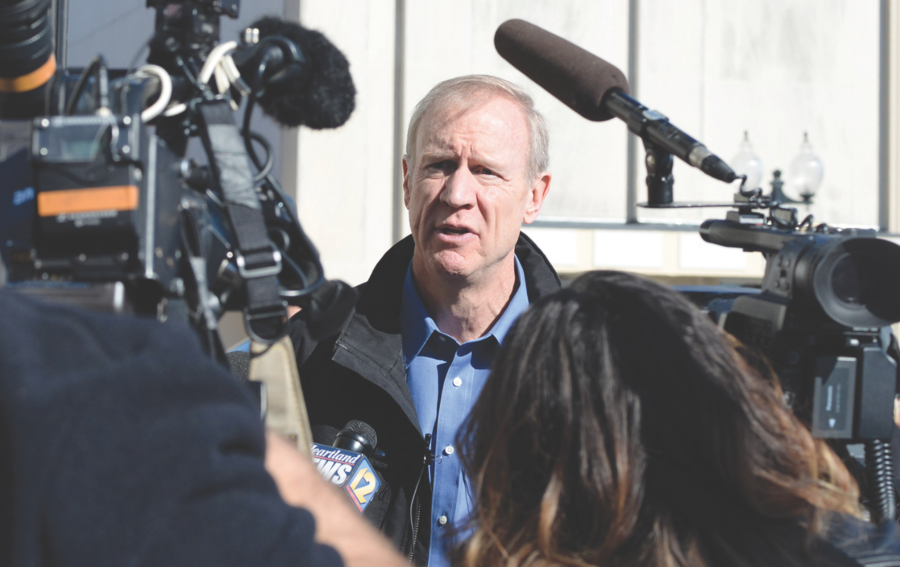Illinois governor signs law banning gay conversion therapy for minors
September 1, 2015
A new Illinois law marks a leap forward in the gay rights movement.
Gov. Bruce Rauner signed a law on Aug. 20 banning any attempts to practice gay conversion therapy on minors in Illinois, making it the fourth state to do so. The law goes into effect on Jan. 1.
Gay conversion therapy is a controversial practice that attempts to stop homosexual behavior in individuals.
Advertisement
“The governor has no social agenda and believes this bill strikes a balance in preserving religious freedoms while protecting the interests of minors,” Gov. Rauner’s Press Sectretary, Catherine Kelly said. “The administration carefully reviewed this legislation to ensure it would not prohibit or otherwise interfere with religious freedom or family access to religious counseling”
Former SIUC student S.J. Creek wrote her Ph.D. dissertation on the subject of conversion therapy and studied three groups: individuals affiliated with conversion practices, individuals disaffiliated with conversion practices and individuals who underwent conversion therapy.
Common practices in conversion therapy include rehabilitation programs, weekly support groups and workshop series.
“It’s a lot of older, outdated psychological techniques,” Creek said.
SIUC professor Craig Gingrich-Philbrook, who studies sexuality theory, said some conversion therapists inflict pain upon patients in order to associate homosexual thoughts with feelings of discomfort, though the technique is rare and antiquated.
“It’s a pretty heated skirmish, but no mainstream medical practitioner is going to be supportive of these kinds of therapies,” Creek said.
Creek cited many conversion programs as religious in nature, with very few secular programs existing. While many religious therapy programs are Christian, other organizations performing conversion therapy stem from various religious backgrounds.
Advertisement*
J. Tobin Grant, a professor of political science at SIUC who studies public policy and religion, noticed some Christian denominations such as Roman Catholics have supported LGBT rights in recent years. The United Church of Christ even allows same-sex marriage.
Grant attributes the growing acceptance of homosexuality to celebrities coming out and activist campaigns like the “It Gets Better Project,” which works to inspire LGBT youth. He believes one defining factor of the shift in public opinion is clear: many people now know someone who identifies as LGBT.
There is much debate around the phrase “conversion therapy.” Religious groups tend to use the terms “reparative therapy” and refer to their patients as “spiritually broken,” Creek said.
Gingrich-Philbrook says terms such as “therapy” and “reparative” suggest someone becomes gay or lesbian.
“To me, calling it ‘therapy’ suggests that there is an illness or a lack,” he said. “It’s an odd word choice.”
He said the phrasing demonstrates presumptions made by conversion therapists that homosexuality is an illness but also said he does not believe conversion practices to be malicious, rather misguided.
Creek and Gingrich-Philbrook both said side effects of gay conversion therapy vary, but many medical groups claim the therapy is potentially dangerous to a patient’s mental health. Individuals can experience depression and thoughts of suicide because they feel unaccepted by their family or unable to change their sexuality.
While the law itself states that no attempts to change the sexuality of minors can be performed, minors can still be counseled on the basis of sexuality.
“I hope that the law encourages people who are still conducting this kind of therapy to really look at the studies and see the harm that it does as opposed to continuing to cause that harm,” Gingrich-Philbrook said.
Cory Ray can be reached at [email protected] or on Twitter @coryray_de
Advertisement








